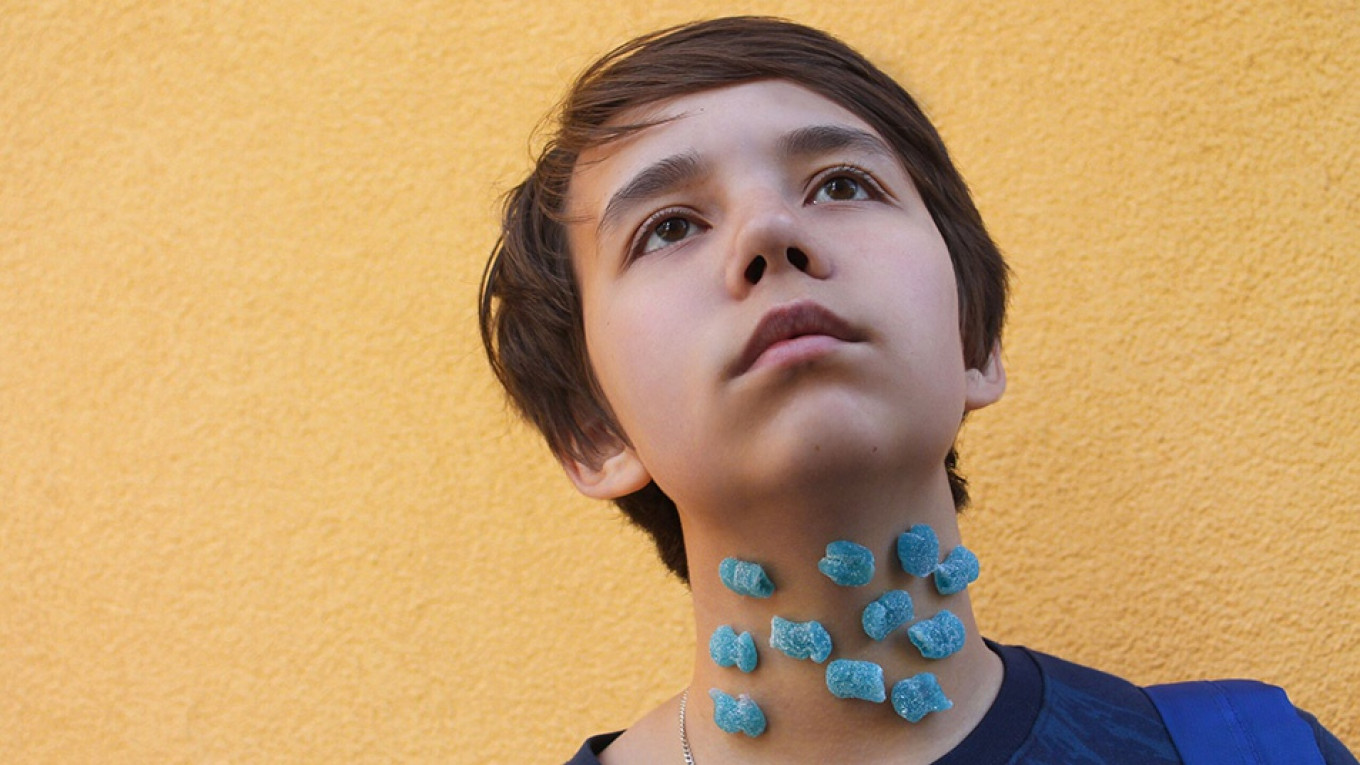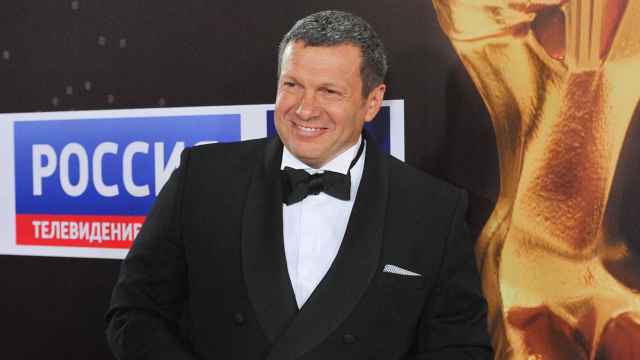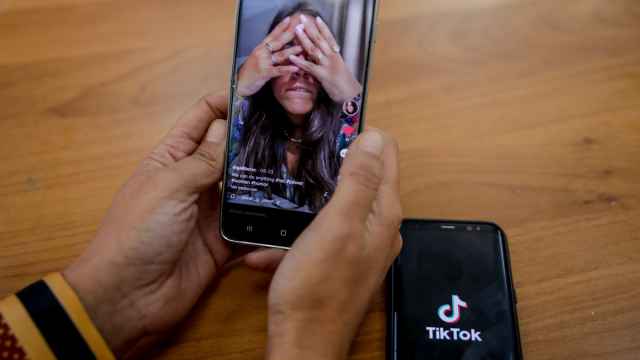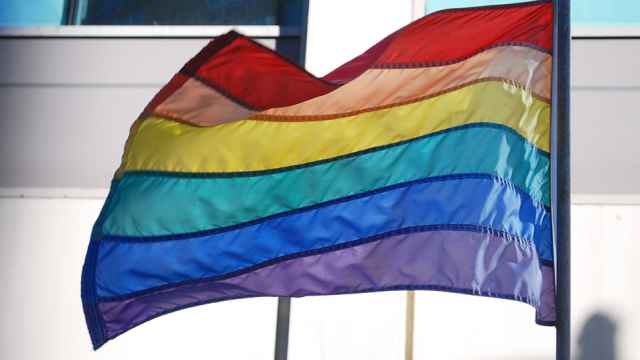Growing up in a small town in the Tula region south of Moscow, Valeria didn’t think much about gender. Valeria looked like a girl and was raised a girl, so it seemed obvious to use feminine grammar structures, too, like “she” and “her.”
Then, around the age of 12, Valeria joined an online chat forum. Here, behind a screen, specifying a gender wasn’t necessary. The freedom was captivating.
“Up to that point, I had only really ever talked to people in person who could tell what my gender was anyway, so it never occurred to me to hide it with language,” Valeria told The Moscow Times. “But on that forum, I suddenly could.”
With closely cropped blond hair and a love for men’s button-down shirts and waistcoats, Valeria, now 22, does not prescribe to a male or female gender.
The global non-binary community has become increasingly visible in recent years, helped by online communities and local activism. Tellingly, media like the Washington Post and the Associated Press are adopting the gender neutral “they” instead of “he” or “she” to refer to members of the community.
But for the small, yet growing number of non-binary Russians who interact in their thousands on social media site Vkontakte, their language does not provide a similarly simple way of expressing gender fluidity.
“In Russian, every word, with the possible exception of adverbs, has a grammatical gender,” explained Alex Pershai, associate professor of Slavic linguistics at the Center for Gender Studies of the European Humanities University in Vilnius. "It cannot be removed or neutralized.”
Refusing to be limited by grammar, however, non-binary Russians are inventing their own language forms.
A linguistic revolution
Russian nouns have one of three genders: masculine (on), feminine (ona) or neuter (ono), which almost never refers to people or living things. The adjectives and verbs used with the three types of nouns also indicate gender.
“There’s a sexist element there that people know about but don’t often mention,” Pershai added. “Slavic languages have their own way of reinforcing gender, which is definitely tied into a social system as well.”
While granting it would be better if an entirely new gender-neutral pronoun were introduced to the Russian lexicon, Valeria uses the male and female pronouns “on” and “ona” interchangeably as a temporary fix.
“It’s actually exciting to be called ‘he’ sometimes and it makes me happy because it shows somebody can’t tell what sex I am,” Valeria said.
Sasha, a non-binary student from Moscow, also alternates between “on” and “ona.” A 17-year-old with floppy black hair and bold traced-on eyebrows, Sasha wears tracksuits along with ripped tights and a long silver chain necklace.
“I use whichever pronouns are most comfortable for me at any given time,” Sasha said.
Other non-binary Russians have adopted the neuter gender pronoun “ono,” even though it flouts grammar rules.
But for people like trans activist Seroye Fioletovoye or “Gray Violet,” an adopted name, the neuter form was the obvious choice.
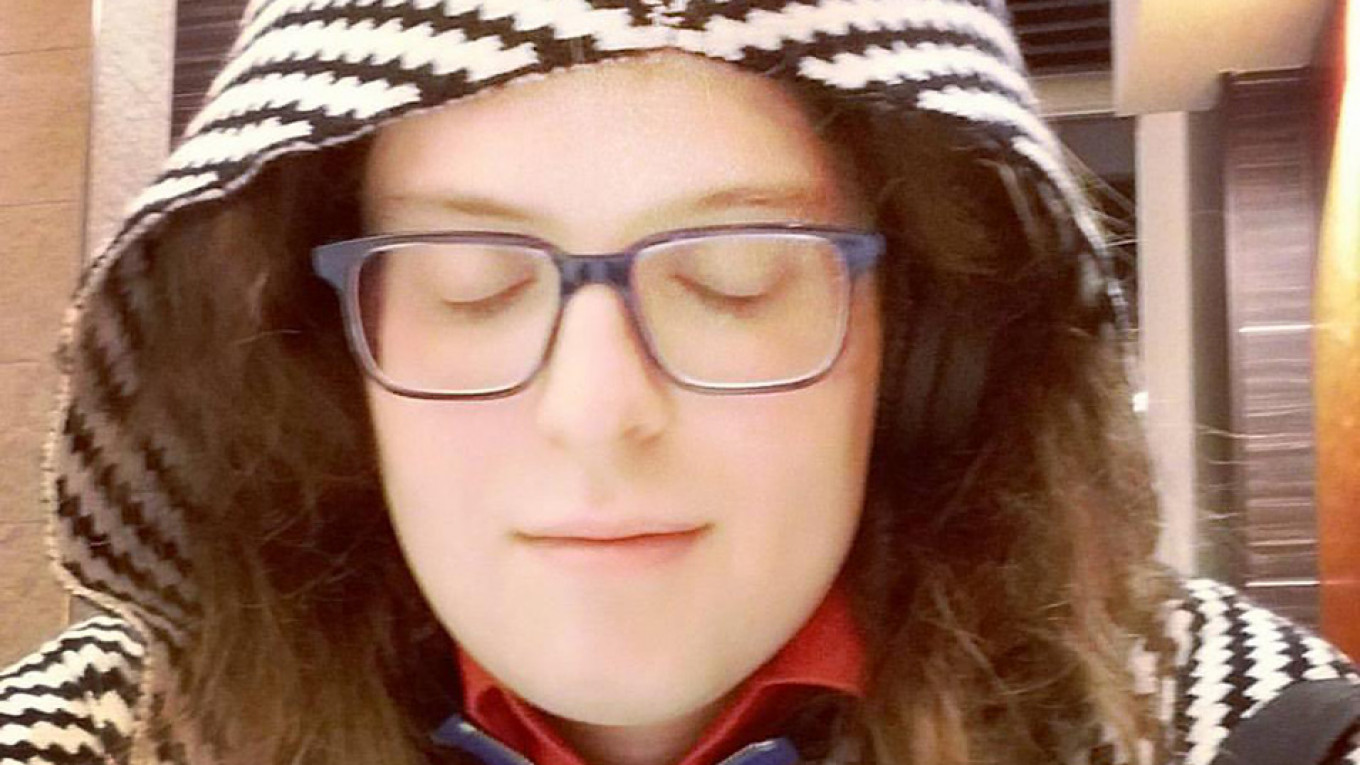
“‘Ono’ was the most neutral option,” Seroye Fioletovoye said in a vegetarian cafe in Moscow, brushing long brown hair over one shoulder. The two adjectives that make up Seroye Fioletovoye’s name, gray and violet, are also declined as neuter.
Language trends
Like Seroye Fioletovoye, So*ni chose their own gender-neutral name and insists on it being spelled with an asterix.
So*ni, who lives in the Moscow region, was assigned male at birth but began rebelling against the label at an early age.
“I first realized that I didn’t fit into society’s idea of men when I was in school,” So*ni recalled. “A few years later, around 2010, I first encountered the terms ‘gender’ and ‘gender role’ and realized that I did not conform to them.”
In the years that followed, So*ni experimented with almost every language variant imaginable, but found that nothing seemed to fit.
Then, in 2016, So*ni joined a project called the “Language Neutralization Laboratory.” Organized by Russian LGBTQ+ group Magma, the project held weekly workshops that looked for ways to make the Russian language more inclusive. It inspired So*ni to invent an entirely new and elaborate gender-neutral version of Russian.
In Russian, a verb in the past tense is conjugated with three possible endings to match the grammatical gender of the noun, “on,” “ona” or “ono.” So*ni instead ends all verbs in the past with “-khshi,” a completely different variation that negates any reference to gender.
Take the phrase “I was reading.” In Russia, a man would say “ya chital” while a woman would say “ya chitala.” So*ni, however, would say “ya chitakhshi.”
Listening to So*ni speak this version of Russian can feel alienating at first. But despite the initial confusion, So*ni finds that people eventually adjust.
“I often feel awkward when I use this new language system with someone for the first time,” So*ni said. “But I try to overcome it, because I feel uncomfortable when I’m forced to use gendered language forms.”
Still, linguists like Pershai say that lasting change will require convincing Russian speakers outside the community, too.
“As an activist, I fully support any democratic change and any innovation. But as a linguist, I’m well aware that some of the changes don’t work,” Pershai said. “It might be fashionable for a while but it’s not going to stick.”
Hindered by language
As abstract as the proposals might seem, attempts to change Russian have emotions running high.
“I once asked a person I was very close to, to use the neuter gender when referring to me. They were outraged and even insulted me,” So*ni recalled. “It was really painful.”
And the use of the neuter pronoun “ono,” which might seem like the obvious solution, is controversial even within the community, with some arguing it is offensive.
“Addressing a human being using the neuter is strange at best and insulting at worst,” explained Polina Ravlyuk, who runs a blog on the Russian language for the LGBTQ+ community.
“In my opinion, language will be far from the greatest concern for the LGBTQ+ movement in Russia as long as there is also rejection, hatred and a desire in society to ‘make these people normal,’” Ravlyuk added.
“Language is important, but it’s the wider culture that should be tackled,” agreed Seroye Fioletovoye.
For that fight, however, Russia’s non-binary community needs to find the right words, says So*ni.
“Inventing new pronouns and gender categories does not automatically solve the problem of inequality. But it does make it harder and harder to use unequal language.”
A Message from The Moscow Times:
Dear readers,
We are facing unprecedented challenges. Russia's Prosecutor General's Office has designated The Moscow Times as an "undesirable" organization, criminalizing our work and putting our staff at risk of prosecution. This follows our earlier unjust labeling as a "foreign agent."
These actions are direct attempts to silence independent journalism in Russia. The authorities claim our work "discredits the decisions of the Russian leadership." We see things differently: we strive to provide accurate, unbiased reporting on Russia.
We, the journalists of The Moscow Times, refuse to be silenced. But to continue our work, we need your help.
Your support, no matter how small, makes a world of difference. If you can, please support us monthly starting from just $2. It's quick to set up, and every contribution makes a significant impact.
By supporting The Moscow Times, you're defending open, independent journalism in the face of repression. Thank you for standing with us.
Remind me later.


